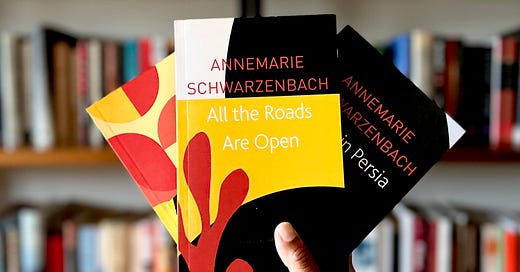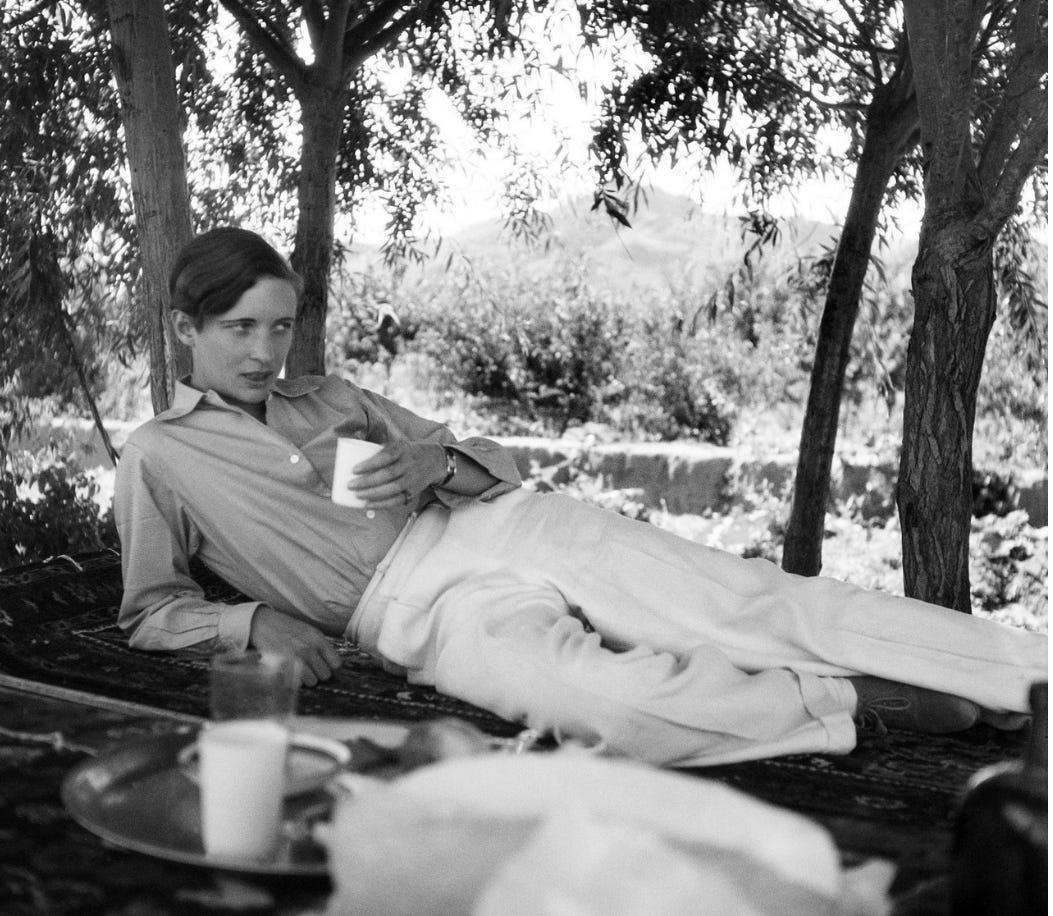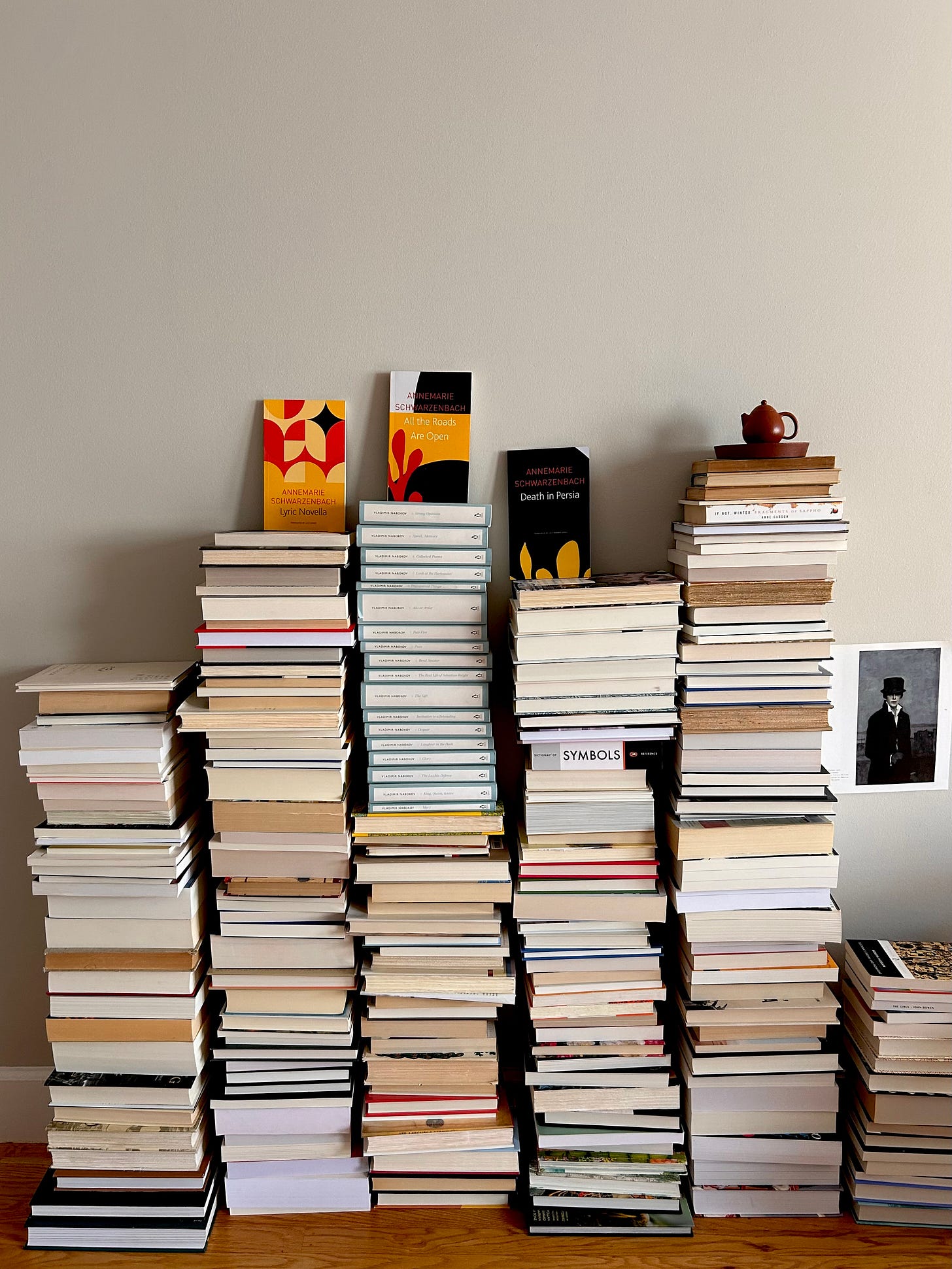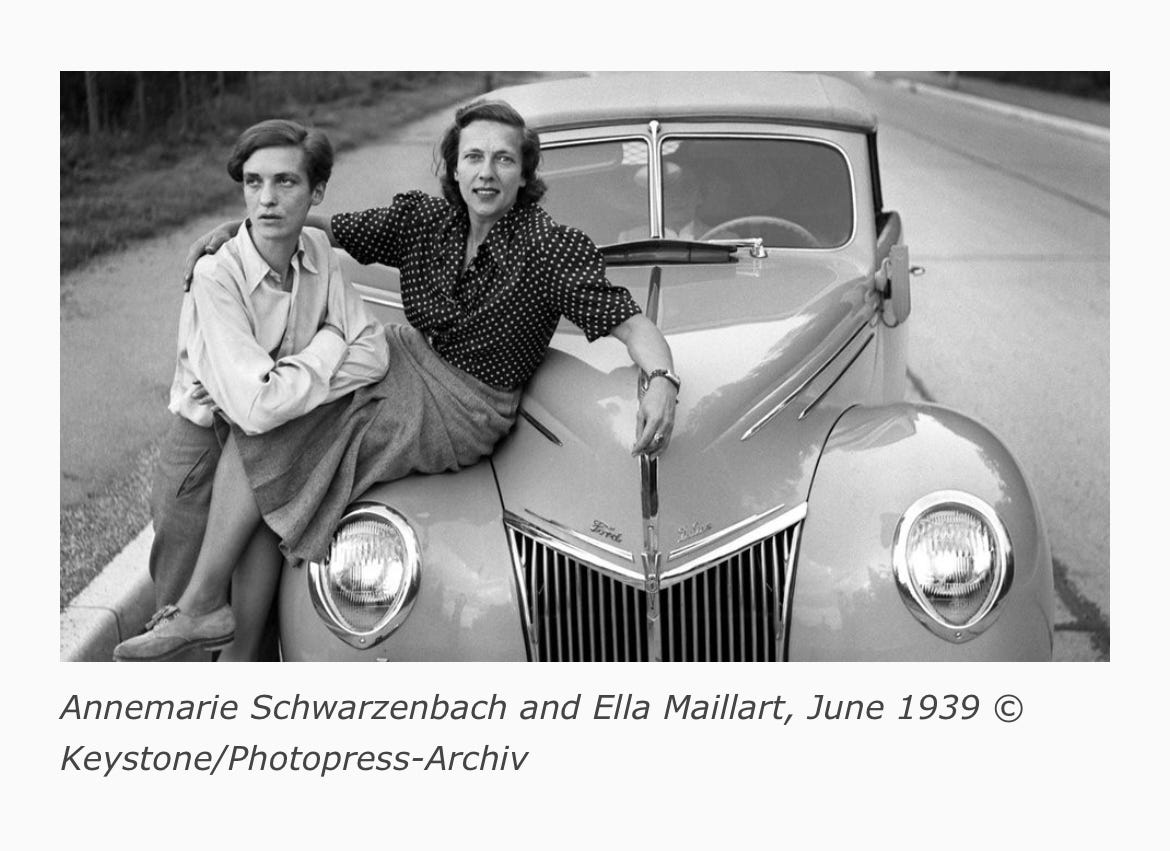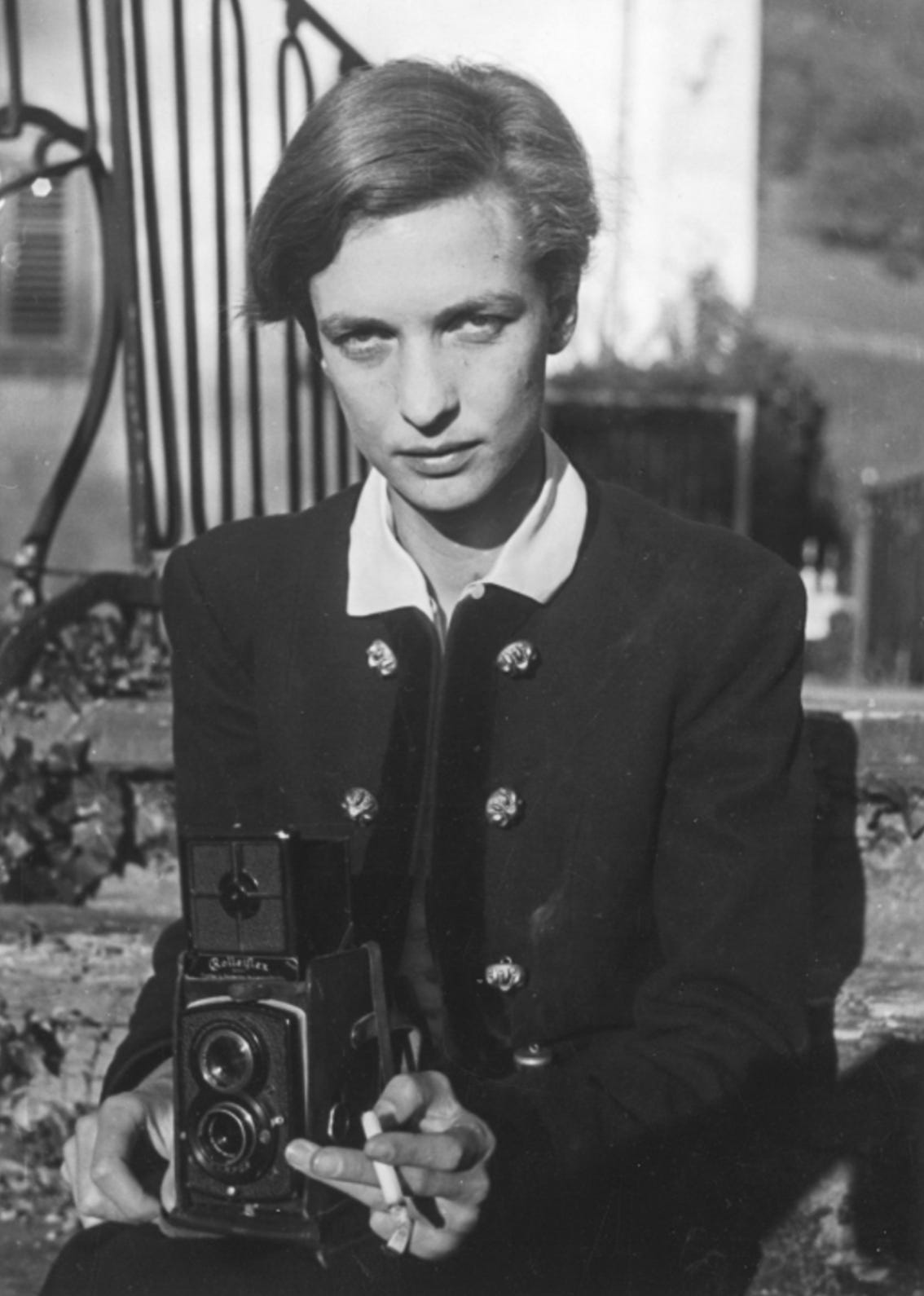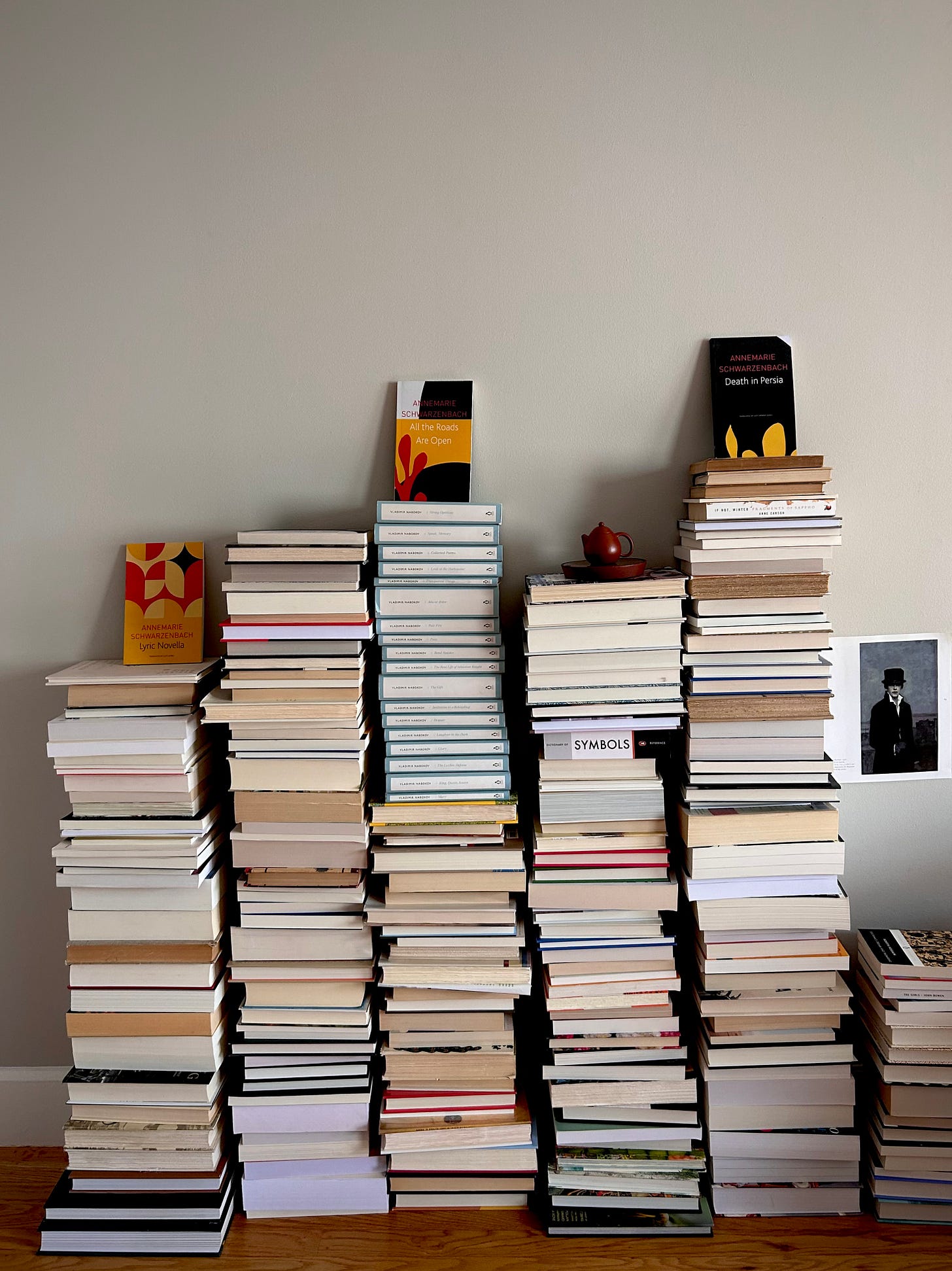All the Road Are Open: Annemarie Schwarzenbach
A travelogue of compassion and free of prejudice...
I read “All the Road Are Open”, and then bought Annemarie Schwarzenbach’s other two available works, “Death to Persia” and “Lyric Novella”. They’re published by an Indian publisher, Seagull Books (@seagullbooks), and if you haven’t checked out their catalog, I’d recommend doing so.
“All the Road Are Open” is about Annemarie Schwarzenbach’s road trip to Afghanistan, along with writer Ella Maillart. Annemarie’s life was a difficult one*, and you can perceive her heightened emotionality at times in this travelogue. She writes of progress in Afghanistan, and her hopes that progress would extend to women will not be held by chador (called thus in Afghanistan, but the internet seems to think this would be purdah and burka, more properly, as only eyes of the women were revealed). She’s hopeful when she visits a school in Kabul and sees very bright young girls, versus the misery and oppression of the grown women she meets during her travels. She describes Afghanistan beautifully, free of fetishization or racial judgement. Her observations include the variation in culture, tradition, and people in different parts of the country. What’s remarkable about reading this is that someone today may have written something similar, with hopes similar to hers for the country, but without the prejudices against it that so many modern Westerners would have. Her writing itself is poignant, balancing events, observations, the loneliness of travel, and sometimes despair.
On the author herself: Annemarie Schwarzenbach was a Swiss writer, journalist, photographer who also earned her PhD before turning 24 and was an androgynous lesbian. In the foreword of her book, the author of the foreword bemoans that she’s known more as a style icon and for her personality than she is for her writing talent. She opposed her family and sometimes her friends in being anti-fascist and anti-Nazism. As a (cis-woman) who gravitates toward androgyny, I think it’s because people like me have so few style icons that we invariably near-worship the one we’ve got (though admittedly, my face is definitely more feminine than AS).

